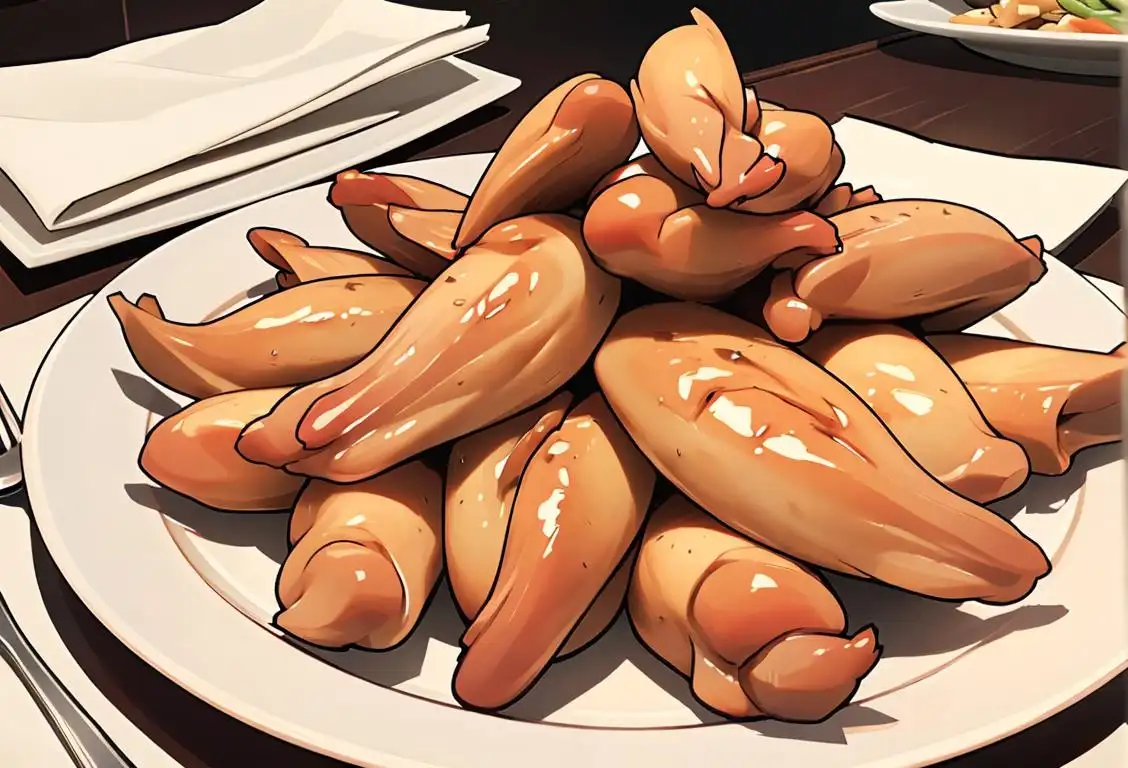National Nut Day

It's a nutty world out there, especially on National Nut Day, an observance that takes us on a cracking adventure into the shell-covered realm of some of our favorite snacks. Held annually on October 22nd, this day has been bringing together the nut-lovers of the internet since it started gaining momentum in 2016, with chatter peaking like a walnut tree full of squirrels.
When is Nut Day?
It's national nut day on the 22nd October.
A Nutty History
The origins of National Nut Day are as hard to crack as a hazelnut without a nutcracker. It seems to be a creation of the 21st century, with the first substantial online mention occurring from around 2010 onwards. However, it was not until the year 2016 that the holiday truly gained popularity with a whopping 27879 mentions online. The most mentions were observed on 22nd October, which is considered the official date of the observance.
A Mixed Bag of Fun
From the nutrient-packed almond and the creamy cashew to the beloved peanut (technically a legume, but we're not picky), each nut has its own unique taste and texture that adds to our culinary experience. The advent of National Nut Day has only broadened our appreciation, spurring nutty creativity in kitchens worldwide.
Going Nuts Online
Every year, as October 22nd rolls around, the internet explodes into a virtual nut festival. Social media is awash with photos of nutty dishes, nut-inspired art, and even nut-related puns. It is a shell-ebration like no other, allowing us to appreciate this crunchy snack and its role in our diets and lives.
History behind the term 'Nut'
14th century
Origins in Old English
The term 'nut' can be traced back to the 14th century in Old English, where it was spelled as 'hnutu.' It referred to the hard-shelled fruit of various trees and plants, which included almonds, walnuts, and chestnuts. This term has its roots in the Germanic language family, specifically from the Proto-Germanic word 'hnuta.'
17th century
Expanded Definition
During the 17th century, the term 'nut' gained a more specific meaning, referring primarily to the edible seed or fruit enclosed in a hard shell. This expanded definition encompassed various types of nuts, such as pecans, pistachios, and hazelnuts. The use of 'nut' to describe these seeds spread throughout the English-speaking world.
19th century
Nutcrackers Become Popular
In the 19th century, the popularity of nutcrackers rose significantly. These devices were invented specifically to aid in cracking open the hard shells of nuts, allowing people to access the edible portion inside. Nutcrackers became a common tool during the holiday season, particularly for cracking open walnuts and hazelnuts. The term 'nut' became further associated with these delicious treats.
20th century
Nut Allergies
In the 20th century, the term 'nut' took on a different connotation with the emergence and awareness of nut allergies. Allergies to various types of nuts, such as peanuts, became prevalent in many individuals. The term 'nut' now carries a cautionary meaning, as it reminds people of the potential allergic reactions some individuals may experience due to specific nuts.
Present Day
Cultural Symbolism and Culinary Delights
Today, the term 'nut' continues to hold cultural significance and culinary appeal. Nuts are commonly associated with health benefits, being a source of protein, healthy fats, and various vitamins and minerals. They are featured in a wide array of dishes, desserts, and snacks across different cuisines worldwide. Additionally, the term 'nut' is often used metaphorically to describe someone who is eccentric or slightly crazy, adding a whimsical touch to its linguistic usage.
Did you know?
Peanuts aren't actually nuts! They're legumes, which means they're more closely related to beans and lentils than to almonds or walnuts.Tagged
awareness food funFirst identified
18th March 2015Most mentioned on
22nd October 2016Total mentions
27879Other days
Sweet Tea Day
Agriculture Day
Cheese Pizza Day
Bacon Day
Pumpkin Day
Medal Of Honor Day
Vodka Day
Foundation Day
Guac Day
Wing Day









